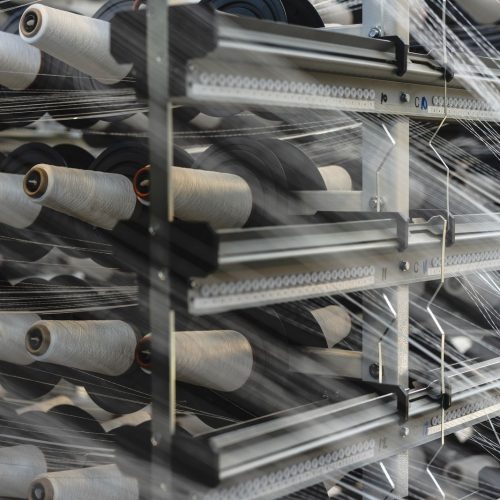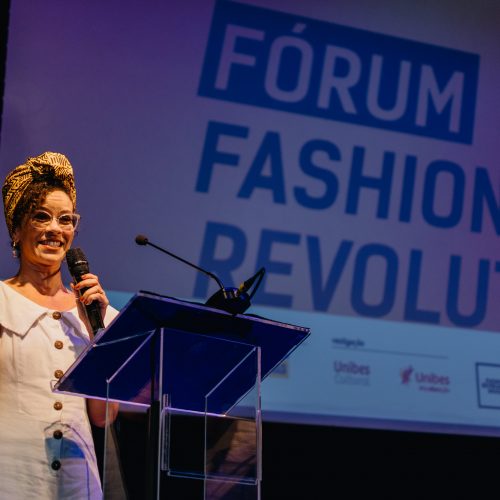Reality Behind the Denim Industry | Interview with Sebastian Proft
Known for being in style, but also including environmentally problematic practices: The Denim industry has a reality behind it that we have to acknowledge. We asked Sebastian Proft, the owner and managing director of Kings of Indigo how to shape the denim industry into a sustainable area.
To receive the Luxiders Newsletter, sign up here.
Though denim being quite in style, since you can wear them anytime and on any occasion; the denim industry is known for various practices that are both environmentally harmful and exploitative. Denim production requires a lot of water, pollutes a lot of it, releases toxic ingredients to nature by the indigo dyeing process, and causes health conditions for the laborers during sandblasting. Thus, it becomes undeniable that the very preferred denim has to be produced differently, and more sustainably. Stepping towards a sustainable future, there comes the question of how to adapt the denim industry to it. We asked Sebastian Proft, the owner and managing director of Kings of Indigo. Here is an enlightening interview with one of the sustainable leaders, Kings of Indigo.

Sebastian Proft
L: We all know the denim industry is known for its widespread pollution and negative environmental impacts, which are caused by various factors including the use of toxic chemicals, excessive water consumption, and energy-intensive production processes. What is your company doing to solve these factors?
SP: We believe in a holistic approach to sustainability. This covers care for the planet, the people that make our products, working towards circularity, and being transparent.
For the environmental part, we focus on using low-impact materials. In 2022, 99.2% of our materials were more sustainable. This includes organic and recycled cotton mostly, next to other natural fibers like hemp and linen, LENZING fibers, and some other recycled fiber.
For the wet processes, the conventional variant is indeed associated with excessive use of water and harmful chemicals and uncontrolled disposal. Luckily, by now a lot of alternatives exist to decrease the negative environmental impact. For Kings Of Indigo production, these include laser solutions, ozone washing, and eco-stones. We also offer a range of non-dyed and raw types of denim, that don’t get none to minimal treatment.
Besides, our dedicated denim supplier invests in practices like collecting and reusing water.
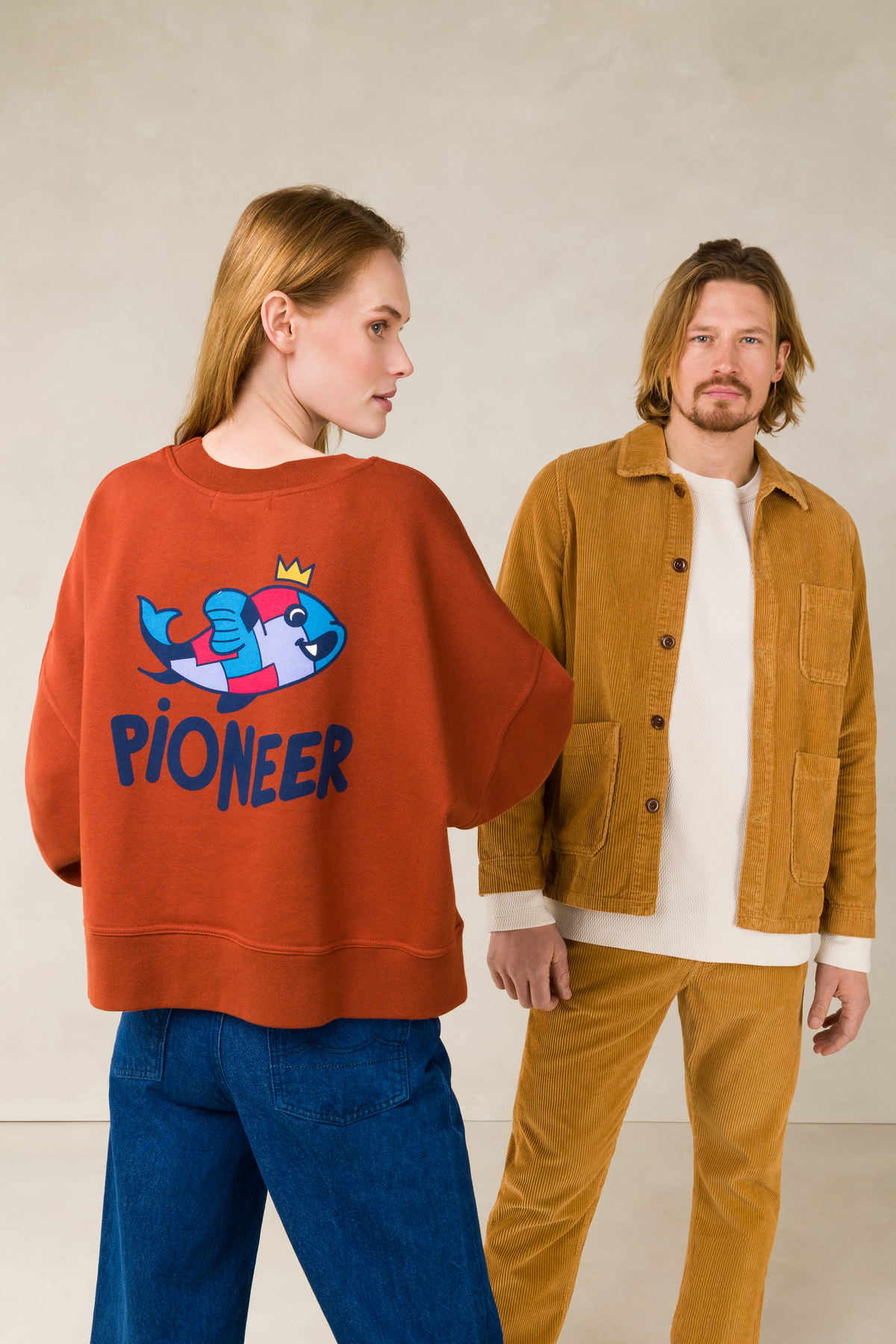
Kings of Indigo ©
L: Regarding production practices, do you think denim leaders are using enough eco-friendly materials, reducing the use of water, energy, and chemicals, and optimizing production processes to minimize waste and pollution?
SP: Certainly, they are not. We are working with the best suppliers in the denim world, who truly care about the ecological impact of the products they are making. However, for the most part of their production, they are still continuing to use limestone for the washing as well as large amounts of water in order to match the aesthetic desired by their conventional customers. Sustainable denim continues to be a story for the few, not the many. Every day we are working towards changing this.
L: How do you think installing treatment systems can help the environment? Can you give us an example of this impact?
SP: It is always better to prevent than to cure – i.e. to use less water and no hazardous substances. For the toxic residue (or sludge: the mixture of water, limestone residuals, and chemicals), treatment should be used.
L: Do you think denim leaders are encouraging circularity as the planet needs right now? How important is this for your company?
SP: To talk from our own perspective: we strongly believe that circularity is the way to go for the future. To achieve this, a change of mindset and systems is necessary. While our business model is still predominantly linear, we are excited about the possibility to move toward a circular economy. We already use quite some recycled materials in our collection (32% in 2022) and are critical about the use of blends in fabrics. We are taking steps towards implementing design for recycling strategies, repair and reuse options and finding the right partners for collaborations.
As for the denim industry, we already see great initiatives including rental, reuse, and recycling systems. Different brands, suppliers, and other stakeholders are also collaborating in the Denim Deal to increase the use of post-consumer recycled cotton in denim. But of course, this is still a lot of room to grow as well.
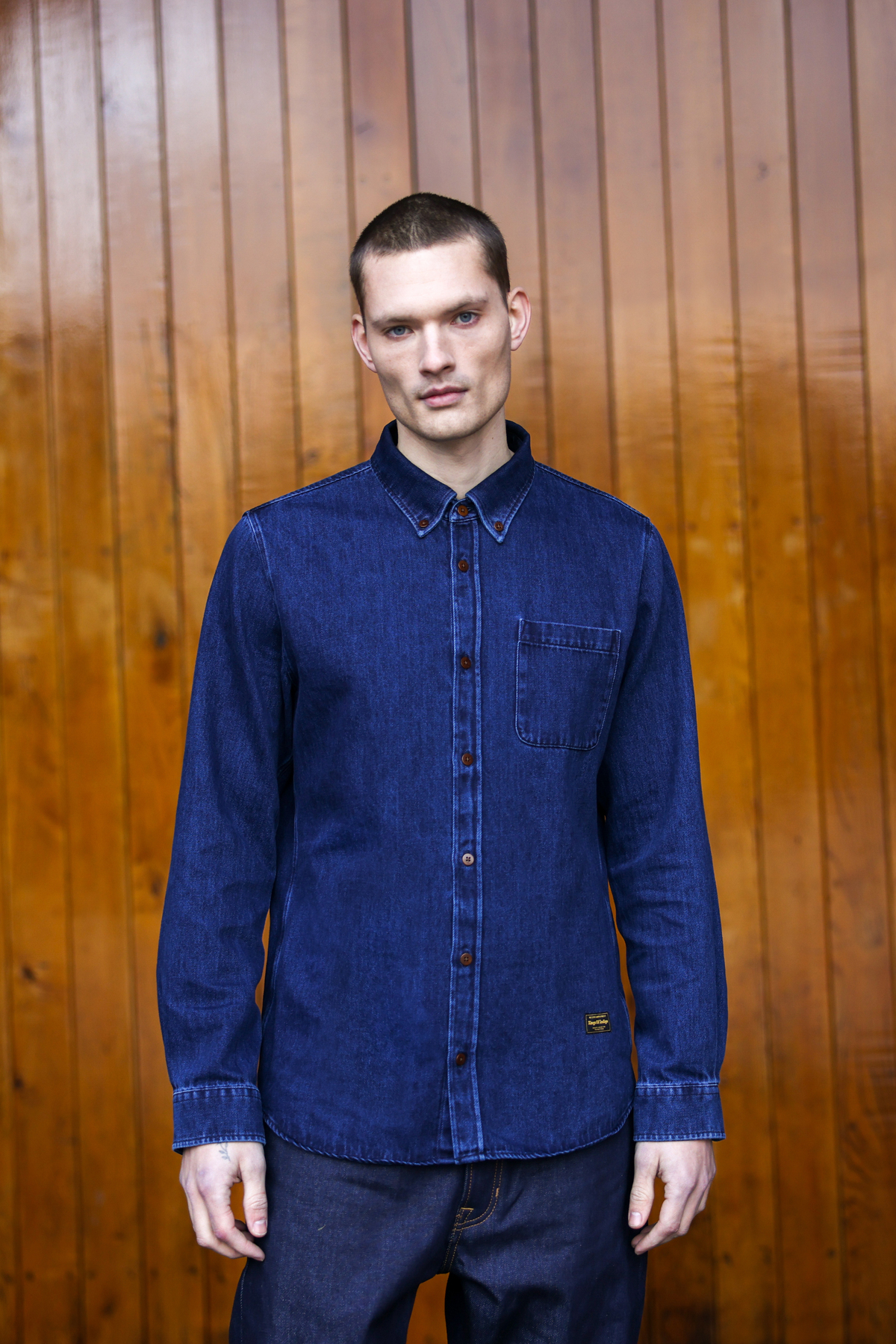
Kings of Indigo ©

Kings of Indigo ©
L: Lately we have been witnessing how fast-fashion and luxury brands are promoting transparency and accountability. What do you think about this? What is your company doing in this regard?
SP: The fashion industry is known to be a complex one, because of its many production steps and production locations all over the world. This often leads to non-transparent situations, contributing to both environmental and social risks.
For Kings Of Indigo, it is fairly simple; we need to know where our production takes place to be able to map risks, measure impacts, take responsibility, and work on improvements accordingly. Transparency is the backbone of our strategy, without this, it is impossible to guarantee sustainability.
Since 2020 we work together with Retraced. The platform helps us to map our supply chains and track sustainability efforts. This is all made visible to consumers through a QR code on the hangtag of each product. It allows consumers to make informed decisions and hold us accountable.
Today, 78% of our supply chain is completely transparent. For the rest, we know at least tiers 1 and 2. And we are on the way to improve towards 100%. We encourage customers to hold brands accountable and to request them to be open. Unfortunately, many companies continue to pay lip service to ensure transparency but do not provide actual, tangible information on a product level.
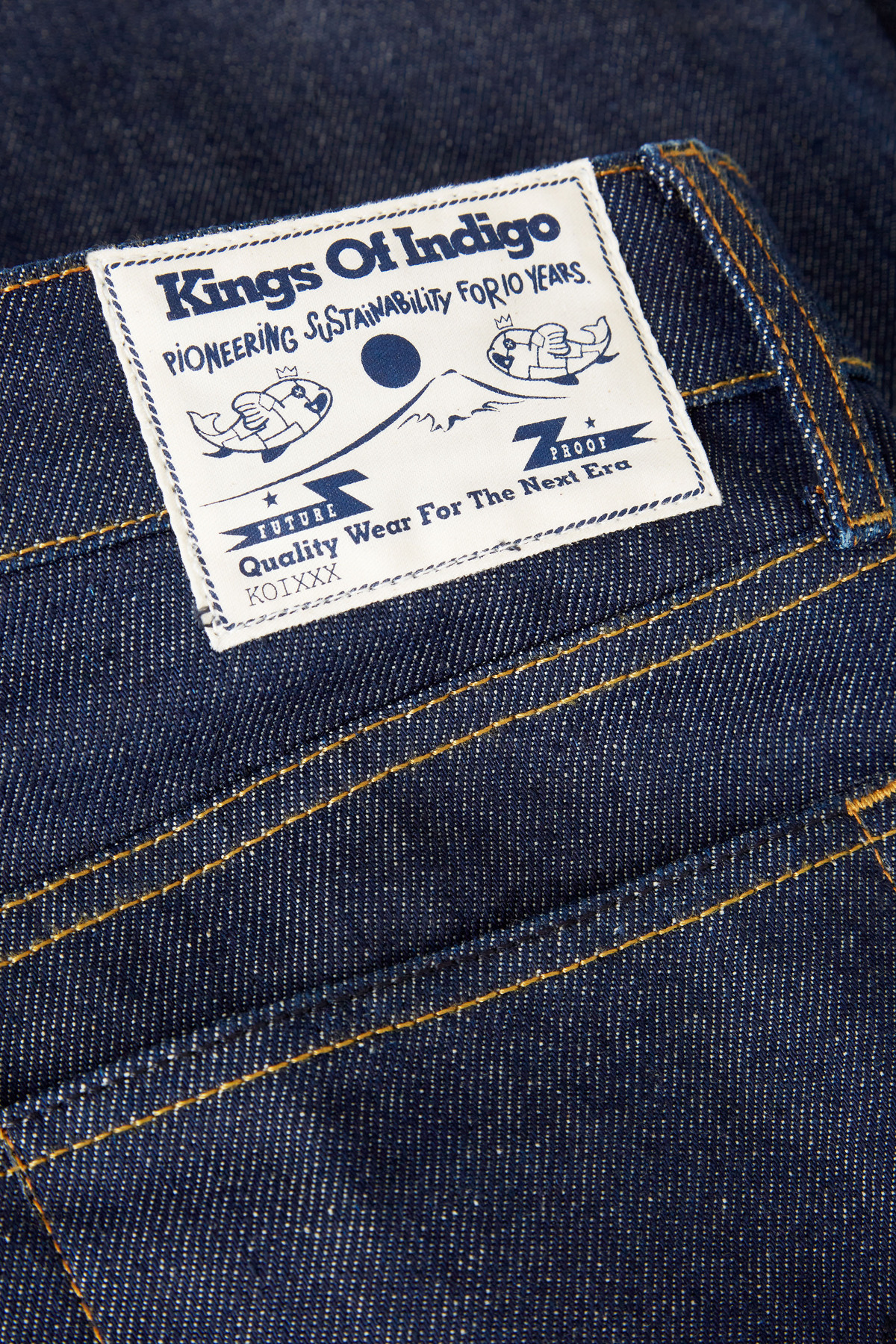
Kings of Indigo ©
The most sustainable garment by Kings of Indigo emerges as dark denims made from mono-material. These pieces carry removable buttons and a cotton-made waistband patch, which allows them to recycle easier and better. The garments offer a sustainable style with comfort and responsibility together. You can explore the brand’s CSR report online.
Interview:
Tolga Rahmalaroglu
Luxiders Magazine Contributor
Known for being in style, but also including environmentally problematic practices: The Denim industry has a reality behind it that we have to acknowledge. We asked Sebastian Proft, the owner and managing director of Kings of Indigo how to shape the denim industry into a sustainable area.
To receive the Luxiders Newsletter, sign up here.
Though denim being quite in style, since you can wear them anytime and on any occasion; the denim industry is known for various practices that are both environmentally harmful and exploitative. Denim production requires a lot of water, pollutes a lot of it, releases toxic ingredients to nature by the indigo dyeing process, and causes health conditions for the laborers during sandblasting. Thus, it becomes undeniable that the very preferred denim has to be produced differently, and more sustainably. Stepping towards a sustainable future, there comes the question of how to adapt the denim industry to it. We asked Sebastian Proft, the owner and managing director of Kings of Indigo. Here is an enlightening interview with one of the sustainable leaders, Kings of Indigo.

50
50
sustainable denim, denim industry, kings of indigo, sebastian proft, organic cotton, sustainable fashion
Sebastian Proft
L: We all know the denim industry is known for its widespread pollution and negative environmental impacts, which are caused by various factors including the use of toxic chemicals, excessive water consumption, and energy-intensive production processes. What is your company doing to solve these factors?
SP: We believe in a holistic approach to sustainability. This covers care for the planet, the people that make our products, working towards circularity, and being transparent.
For the environmental part, we focus on using low-impact materials. In 2022, 99.2% of our materials were more sustainable. This includes organic and recycled cotton mostly, next to other natural fibers like hemp and linen, LENZING fibers, and some other recycled fiber.
For the wet processes, the conventional variant is indeed associated with excessive use of water and harmful chemicals and uncontrolled disposal. Luckily, by now a lot of alternatives exist to decrease the negative environmental impact. For Kings Of Indigo production, these include laser solutions, ozone washing, and eco-stones. We also offer a range of non-dyed and raw types of denim, that don’t get none to minimal treatment.
Besides, our dedicated denim supplier invests in practices like collecting and reusing water.

left
50
50
sustainable denim, denim industry, kings of indigo, sebastian proft, organic cotton, sustainable fashion
Kings of Indigo ©
L: Regarding production practices, do you think denim leaders are using enough eco-friendly materials, reducing the use of water, energy, and chemicals, and optimizing production processes to minimize waste and pollution?
SP: Certainly, they are not. We are working with the best suppliers in the denim world, who truly care about the ecological impact of the products they are making. However, for the most part of their production, they are still continuing to use limestone for the washing as well as large amounts of water in order to match the aesthetic desired by their conventional customers. Sustainable denim continues to be a story for the few, not the many. Every day we are working towards changing this.
L: How do you think installing treatment systems can help the environment? Can you give us an example of this impact?
SP: It is always better to prevent than to cure – i.e. to use less water and no hazardous substances. For the toxic residue (or sludge: the mixture of water, limestone residuals, and chemicals), treatment should be used.
L: Do you think denim leaders are encouraging circularity as the planet needs right now? How important is this for your company?
SP: To talk from our own perspective: we strongly believe that circularity is the way to go for the future. To achieve this, a change of mindset and systems is necessary. While our business model is still predominantly linear, we are excited about the possibility to move toward a circular economy. We already use quite some recycled materials in our collection (32% in 2022) and are critical about the use of blends in fabrics. We are taking steps towards implementing design for recycling strategies, repair and reuse options and finding the right partners for collaborations.
As for the denim industry, we already see great initiatives including rental, reuse, and recycling systems. Different brands, suppliers, and other stakeholders are also collaborating in the Denim Deal to increase the use of post-consumer recycled cotton in denim. But of course, this is still a lot of room to grow as well.

50
50
sustainable denim, denim industry, kings of indigo, sebastian proft, organic cotton, sustainable fashion
Kings of Indigo ©

50
50
sustainable denim, denim industry, kings of indigo, sebastian proft, organic cotton, sustainable fashion
Kings of Indigo ©
L: Lately we have been witnessing how fast-fashion and luxury brands are promoting transparency and accountability. What do you think about this? What is your company doing in this regard?
SP: The fashion industry is known to be a complex one, because of its many production steps and production locations all over the world. This often leads to non-transparent situations, contributing to both environmental and social risks.
For Kings Of Indigo, it is fairly simple; we need to know where our production takes place to be able to map risks, measure impacts, take responsibility, and work on improvements accordingly. Transparency is the backbone of our strategy, without this, it is impossible to guarantee sustainability.
Since 2020 we work together with Retraced. The platform helps us to map our supply chains and track sustainability efforts. This is all made visible to consumers through a QR code on the hangtag of each product. It allows consumers to make informed decisions and hold us accountable.
Today, 78% of our supply chain is completely transparent. For the rest, we know at least tiers 1 and 2. And we are on the way to improve towards 100%. We encourage customers to hold brands accountable and to request them to be open. Unfortunately, many companies continue to pay lip service to ensure transparency but do not provide actual, tangible information on a product level.

50
50
sustainable denim, denim industry, kings of indigo, sebastian proft, organic cotton, sustainable fashion
Kings of Indigo ©
The most sustainable garment by Kings of Indigo emerges as dark denims made from mono-material. These pieces carry removable buttons and a cotton-made waistband patch, which allows them to recycle easier and better. The garments offer a sustainable style with comfort and responsibility together. You can explore the brand’s CSR report online.
Interview:
Tolga Rahmalaroglu
Luxiders Magazine Contributor

